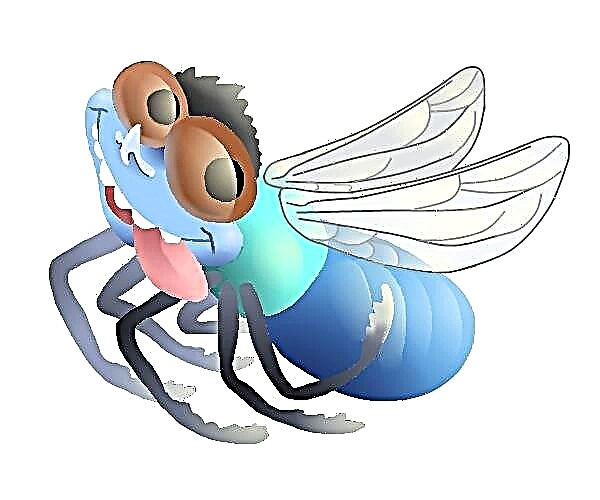If a child is breathing intermittently during sleep, this may mean that he or she is experiencing apnea syndrome - a temporary cessation of breathing that lasts more than 20 seconds. This is more common in a premature baby and occurs during REM sleep (when the baby sleeps better).

Sleeping baby
Important! Short pauses in breathing, lasting 5-10 seconds, are very often observed in newborns and are mostly not pathological.
Causes of breath holding
Apnea occurs in 1 in 100 newborns. In infants born at term, the frequency of apnea is the lowest (about 0.1%), and it decreases in accordance with the degree of fetal maturation. Breath holding occurs in 5-7% of babies born after 34-35 weeks of gestation, and in almost all newborns after 28 weeks of gestation.
The most common cause of delayed breathing in a child's sleep is the incomplete development of mechanisms that regulate the respiratory rhythm associated with the immaturity of a premature baby.
Other causes of apnea in infants:
- infections;
- perinatal hypoxia;
- congenital metabolic pathologies;
- unsuitable ambient temperature;
- mothers taking opioid drugs or drugs containing high doses of magnesium in the period before childbirth;
- using drugs to treat infants that reduce the function of the respiratory center in the brain;
- intracranial bleeding;
- necrotizing enterocolitis;
- heart diseases;
- low blood glucose.

Premature baby
In grown-up babies (from several months and over a year), other reasons come to the fore, associated with the obstructive nature of the disease:
- anatomical anomalies - Robin's syndrome, cleft lip, etc.;
- allergic reactions;
- heavy weight;
- enlargement of the tonsils and the growth of adenoids;
- spasms of the laryngeal muscles;
- delay in the formation of cartilage tissue, as a result of excessive softness of the palate.

Robin's syndrome in infants
Types of breath holding
There are three mechanisms for stopping breathing in a newborn:
- central - associated with dysfunction of the respiratory center in the brain;
- obstructive - caused by obstruction of the airways while maintaining the correct functioning of the respiratory center;
- mixed - when airway obstruction precedes a malfunction of the respiratory center in the brain.
Important! Most cases of apnea in infants are central, less often mixed.
Possible consequences
If a child in a dream holds his breath for 20 seconds or more, this is an alarming symptom that causes oxygen starvation. At the same time, nerve cells can die, which leads to serious consequences, these are:
- developmental delay;
- epilepsy;
- neurological disorders;
- attention deficit hyperactivity disorder;
- heart rhythm disorder.
Also, a lack of oxygen can provoke an increase in blood pressure.
Important! It is assumed that prolonged apnea in a child can lead to sudden death.
Sudden infant death occurs on average in one in 1000 children, and its causes are not fully understood. According to experts, respiratory arrest during sleep is one of the possible factors.
Breath holding symptoms
A child breathes much faster than an adult. It is normal for him to take 60 breaths per minute. The sounds made by an infant when breathing are very diverse. This is due to the fact that he breathes only through his nose. The baby may whimper and groan during sleep, which is not a cause for concern.
The breathing rhythm of the baby changes during sleep. It can speed up, slow down, and sometimes stop for a few seconds. According to doctors, this is a normal condition, which they describe as intermittent breathing. It is likely in an infant under 6 months of age.
Unlike apnea in adults, which is manifested by snoring, a child holds his breath in a dream almost silently, and it is difficult to notice. Parents should pay attention to the following symptoms:
- irritability and tearfulness, the baby may wake up, scream and cry during sleep;
- weakness and apathy;
- lack of appetite;
- easy cough;
- after inhalation, the chest freezes;
- the baby tries to breathe through his mouth when he sleeps;

The kid tries to breathe through his mouth
- sweating;
- strange posture while sleeping.
The severity of symptoms is indicated by:
- blue lips and skin of the face;
- lack of visual signs of expansion and contraction of the chest;
- a sharp slowdown in the pulse.
If a newborn can hold his breath for a few seconds, but this happens infrequently, and no other symptoms are observed, then this phenomenon is considered normal, since the baby is just learning to breathe.
Important! If you hold your breath for more than 15 seconds and there are additional alarming symptoms, you should immediately show the baby to a specialist. The doctor will determine why the baby is holding his breath and, if necessary, prescribe treatment.
How to help a child
In most children, apnea goes away as the nervous system matures. The respiratory center in the brain fully matures at about 1 month of age in term infants. If the baby was born prematurely, then these terms are shifted by 2-3 months.
In case of a sharp slowdown in the pulse and blue discoloration of the skin, as well as if the movements of the chest stop and the arms and legs sag, the baby needs urgent help.
Parents' actions:
- Quickly lift the baby out of the crib, turn him so that his face is facing down, lightly pat the baby on the back. If this does not help, artificial respiration should be started.
- Put the baby on his back on a flat, hard surface, see if there is a retraction of the tongue. If vomit is present in the mouth, clean it with gentle movements using a finger wrapped in a clean cloth.
- Putting your hand under the neck, lightly press on the forehead so that the head is thrown back a little, and the airways are free.
- Take a deep breath, wrap your mouth around the baby's nose and mouth at the same time and exhale the air, following the movement of his chest. After raising it, stop exhaling.

Artificial respiration for babies
Important! The volume of the chest of an infant is much less than that of an adult, so in no case should all the air be exhaled.
- Free the baby's nose and mouth in order to take a new breath. At the same time, his chest will collapse, a natural exhalation will occur.
- The frequency of manipulation is 30 times per minute.
- If it is noticed that the baby breathes on its own (by expansion and contraction of the chest), artificial respiration should be stopped. When he breathes weakly and intermittently, the manipulations must be continued, trying to ensure that the artificial breath coincides with the natural breath of the baby.
- In the absence of a pulse, which is better felt on the neck, it is necessary to combine artificial respiration with chest compressions. To do this, you need to take 2-3 breaths, then place 2 fingers of one hand just below the nipple line and apply 5 pressure. The order of alternation in the future - for 1 breath 5 pressures. The total number of chest compressions should be 100 per minute.
Simultaneously with the beginning of resuscitation procedures, it is necessary to call an ambulance and continue them, if necessary, until the doctors arrive.
Important! It is strictly forbidden to give the baby a breast or a bottle of water, or any medication.
Preventive actions
Preventive measures to prevent breath holding in infants are mainly reduced to the correct arrangement of the place of sleep and the position of the child:
- Make sure that the newborn does not lie on its tummy when sleeping. The best position is on the side or back;
- Responsibly, you should approach the choice of a mattress. He must have sufficient rigidity. The use of feather beds, pillows and blankets is not allowed. The presence of large soft toys in the baby's bed is also prohibited;
- It is better to use a light blanket as a blanket, without raising it above the line of the baby's shoulders;
- It is necessary to control the air temperature in the room where the child sleeps. Its ideal value is 18-20 ° C. The maximum is 24 ° C. At higher temperatures, the brain requires more oxygen, and its sensitivity to hypoxia increases;
- Smoking in the baby's room is contraindicated;
- A crib for babies who are prone to holding their breath is best placed in the same room as the parent to facilitate monitoring.

Baby sleeps in parents' room
Children who have experienced apnea at an early age do not need any further specialized treatment. The risk of complications is also low with careful observation of the baby and timely referral to specialists.



